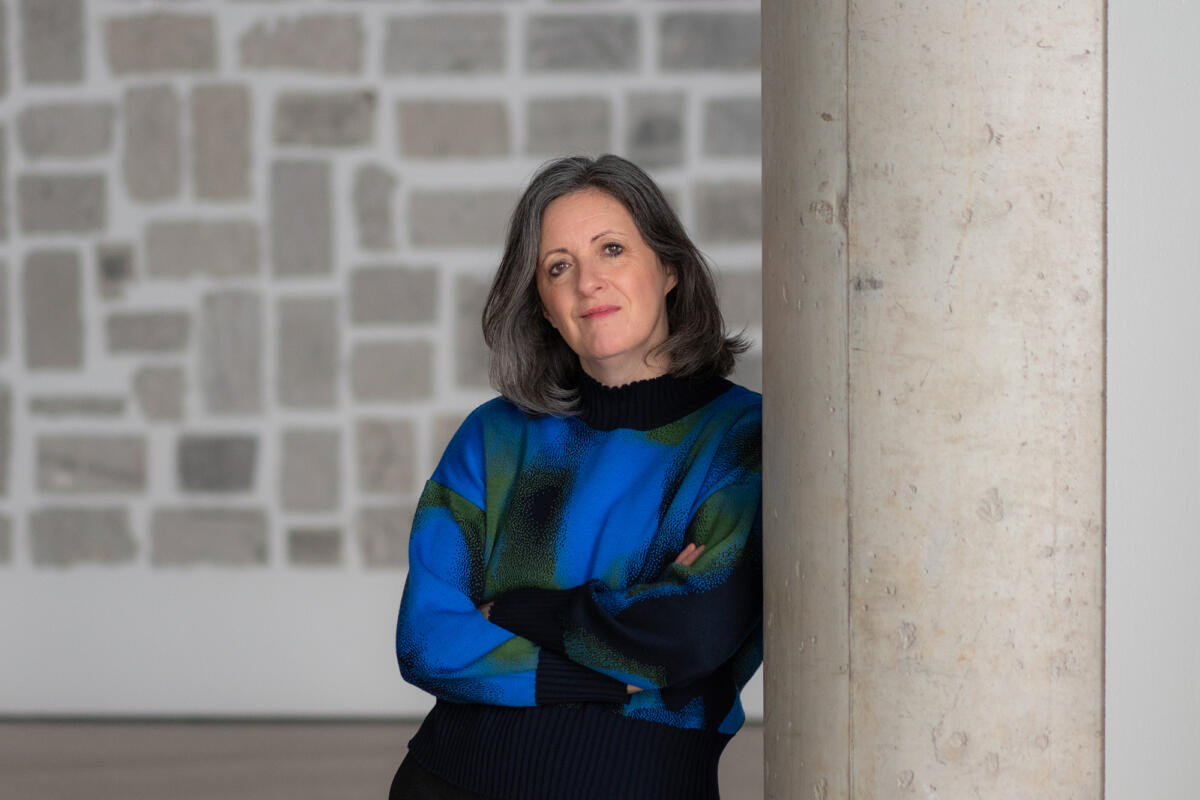Curator and mentor Angela Rosenberg: “To support young artists, it is important to create an atmosphere of trust”
Curator Angela Rosenberg is one of the mentors of the Saastamoinen Foundation’s international mentoring programme. In this interview, Rosenberg explains what kind of support young artists need in the beginning of their careers.

How has the mentoring work changed during the last six years at the Academy of Fine Arts?
The mentorship program was designed as a platform for thinking together about the individual challenges young artists face after art school. The program exposes students to a tandem setup with two professionals working in different fields, sharing their expertise, discussing and practicing presentation and networking strategies, thereby multiplying insights into the global art world. When I joined the program in 2017, the mentoring team consisted of a curator and an artist. Together with Pilvi Takala, and later Hans Rosenström, we carried out a program catering to the individual needs of the mentees. For deeper discussion and to create synergetic effects, the one-on-one mentoring sessions were supplemented with group meetings.
For the upcoming period I am looking forward to collaborate with the curator Jonatan Habib Engqvist. And if the mentees are up for it, we will put more emphasis on the aspect of group dynamics to create awareness for the strategic potential of group work.
Did you develop any special formats for the program?
During the pandemic we could neither meet nor travel, so we introduced a new online format for individual curatorial visits. For this, we invited international curators from our network for virtual studio visits with the mentees. Although the format started as a substitute for live interaction, the formal constraints of online conversations require a more focused approach, which worked to the advantage of the format and made it efficient, popular and successful, so now it has become an essential component of the program.
From the beginning, the aspect of reaching out and traveling was very important, therefore I am more than happy that we can again undertake a trip to an important art destination in Europe. It is not only our aim to see exciting exhibitions, but to provide first-hand experiences into current art practice, production issues, selection processes, funding and promotion strategies.
In regard to upcoming subjects, I would like to discuss a sensible approach of social media as communication tool, a question that has kept many students occupied over the years.
What makes a mentor successful?
Mentorship can involve support on topics such as improving artistic workflow, strategic advice regarding professional networking, time management, or self-representation, but most importantly advice on individual projects. To support the professional development of young artists, it is not primarily knowledge that is required, but also, and maybe more importantly, the establishment of an atmosphere of trust to allow for a free and creative flow of communication.
Besides, the more proactive the participants are, the more accurately we can define goals and design the program accordingly. The next step will be to encourage students to leave the protected space of the art school, initiate international networks in and beyond the program, and work towards building up sustainable supportive structures. Last year, one successful outcome in this context was the group show “This Coming Together”, organised by the mentees and curated by Sakari Tervo at Kuva/Tila, March 2023.
How can access to the international art scene be improved?
It is not easy to get an overview of what is going on in the international art world, to follow controversial debates on a plethora of platforms and to develop your own artistic language at the same time. Rather you lose yourself in the flood of information the internet offers. Especially social media often are more of a curse, than a blessing. In fact, many young artists complain and feel stressed about it. In response we try to encourage the participants to build up sustainable relationships and hope to whet their appetite, encourage them to be curious, to find out what is going on, also outside Finland.
What have you learned as mentor?
I have had the privilege to mentor a series of highly talented and ambitious art students. Meanwhile I was often confronted with high expectations. It is important for the relationship between mentor and mentee to be honest and to understand, that there is no one single recipe, how to become a successful artist. My support can lie in helping to identify criteria for ideas and concepts and suggest strategies for their refinement and implementation, while learning to keep a long breath. My own practice as curator and senior art executive informs the questions I ask. By finding answers to these questions in a dialogue with the participants, I can contribute to making an artistic career not only happen but also last.